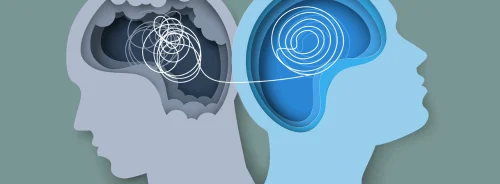Relapse rates in behavioural health treatment present a persistent challenge. Up to 80% of individuals with substance use disorders experience relapse at some point, leading to discouragement among patients and providers alike. However, a new ally is emerging in the battle for sustained recovery: Artificial Intelligence (AI).
Early Intervention: Catching Relapse Before it Starts
Videra Health, an AI-powered mental health assessment platform, underscores the potential of AI in reducing relapse rates. One significant advantage of AI is early detection. Traditional methods often overlook subtle changes in a patient’s behaviour or emotional state. AI, however, can analyse a combination of video, audio, and text data, identifying early warning signs that might indicate an increased risk of relapse. This capability allows for earlier intervention, which is crucial for preventing a complete relapse episode. By catching these signs early, providers can adjust treatment plans and offer additional support to avert a crisis.
Beyond Detection: AI as a Long-Term Recovery Partner
AI-driven platforms offer more than just early warnings; they are invaluable tools for reducing relapse rates through continuous support. AI contributes to behavioural health recovery in three essential ways:
Data-Driven Decisions: AI can analyse relapse trends, identify potential triggers, and personalise treatment strategies to meet individual needs. This data-driven approach ensures that care plans are tailored to each patient’s unique circumstances.
Smarter Interventions: AI insights enable the creation of targeted interventions tailored to specific situations, providing more effective support precisely when a patient needs it most. This precise targeting can make a significant difference in preventing relapse.
Continued Monitoring: With remote monitoring capabilities, AI allows for ongoing assessments and follow-up care, minimising relapse risks and promoting sustained recovery. Continuous monitoring ensures that any signs of relapse are detected and addressed promptly.
The Power of Objective Data: Measurement-Based Care for Better Outcomes
Traditional behavioural health treatment has relied heavily on subjective assessments, which can be inconsistent. AI platforms revolutionise this approach by offering objective data to track progress and identify relapse risks. This method, known as measurement-based care, empowers providers to deliver more effective and personalised care plans. By relying on objective data, healthcare providers can improve patient outcomes and significantly reduce relapse rates.
AI-powered screening and remote patient monitoring platforms are not just technological advancements; they are transformative tools in the fight against relapse. By offering early detection, comprehensive data analysis, and support for long-term recovery, AI empowers providers to deliver exceptional behavioural healthcare. Additionally, by identifying patients at higher risk of relapse, AI can help reduce overall healthcare costs associated with addiction treatment, making it a game changer in the field of behavioural health.
Source: HIT Consultant
Image Credit: iStock






